by | Mohamad Azreen Firdaus Abd Aziz, Nur Suraya Mustafar
azreen@might.org.my, suraya@might.org.my
I s there any relation between agriculture and climate conditions; and can climate change disrupt our food supply and availability? The answer is yes. And to respond to climate change, conventional agriculture activity requires advanced sustainable practices in many aspects, which is commonly described as Climate Smart Agriculture (CSA).
The key philosophy of CSA is to promote the best practices of agriculture activities towards enhancing the productivity and resilience of the agriculture farm system in embracing climate change. As climate change and global warming have negative impacts on agriculture, food security and livelihoods, the implementation of CSA will improve the productivity of agriculture, adapting to climate change and thus mitigating greenhouse gas emissions.
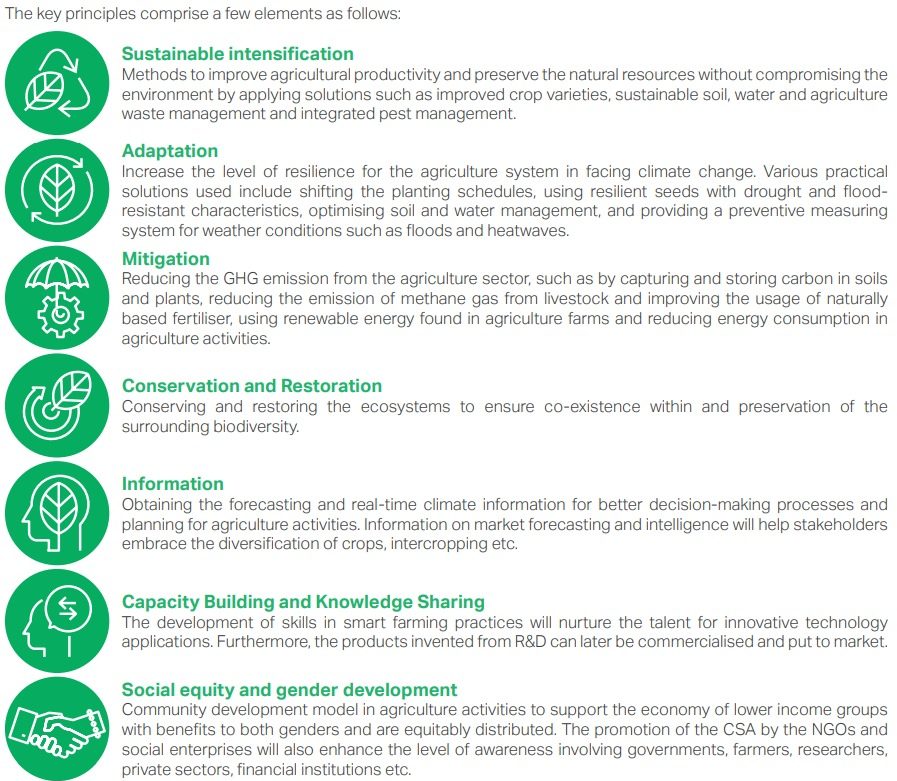
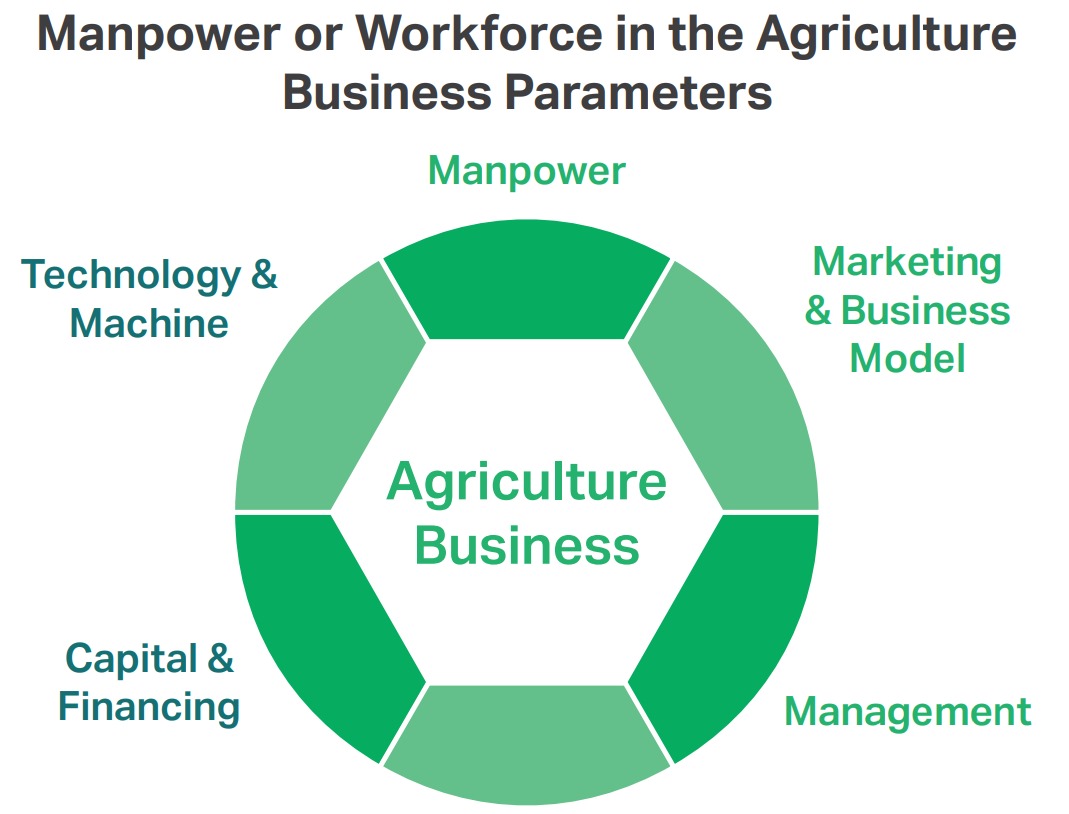
The two key elements of capacity building and knowledge sharing, social equity and gender development are very much interrelated and will be further elaborated in this article. As manpower or workforce factor is considered as a key parameter for the agriculture industry, there is a need to emphasise it to accelerate the industry’s development. In the national context, total imports of the agriculture sector increased from RM98.3 billion in 2020 to RM120.5 billion in 2021, showing the scarcity of local agrifood production. In addition, the CSA initiatives play a critical role in the future agriculture industry. Thus, the involvement of youth in the CSA is very much essential to uplift their capability and capacity in ensuring sustainable food security.
According to statistics, Malaysia is currently facing a shortage of workforce and talent in the agriculture sector, especially from the youth group. As of 2015, only 15 per cent of the workforce were youths and in 2016, only 4.2 per cent of tertiary graduates were willing to consider and pursue a career in agriculture. In 2019, only 10.6 per cent (equivalent to 1.6 million people) of our total workforce were involved in the agriculture sector. However, in 2021, the percentage further dropped to 10.3 per cent and was mostly dominated by the citizen group at a percentage of 63.6 per cent. According to the Green Technology Foresight 2030, the opportunity in the agriculture sector is huge considering the industry value from input supply, smart production systems, processing and manufacturing, distribution, marketing and consumption.
To promote the involvement of youth in agriculture, various initiatives and programmes have been implemented by a few institutions such as The Young Agropreneur Programme (Program Agropreneur Muda) by the Ministry of Agriculture and Food Security, and financial assistance from AgroBank.
MIGHT (Malaysian Industry-Government Group for High Technology) has also put a significant effort into driving youth involvement in smart agriculture via a special platform of Upskilling Programme for Deeptech Futureskills under the Ministry of Science, Technology, and Innovation (MOSTI). In this initiative, an opportunity was given to upskill their theoretical knowledge and hands-on practical in smart farming as part of the features of the CSA. Youth participants were given exposure to learn the latest technology solutions and agriculture best practices such as precision vertical farming (PVF) featured with a controlled environment in a container-based and integrated IOT fertigation system.
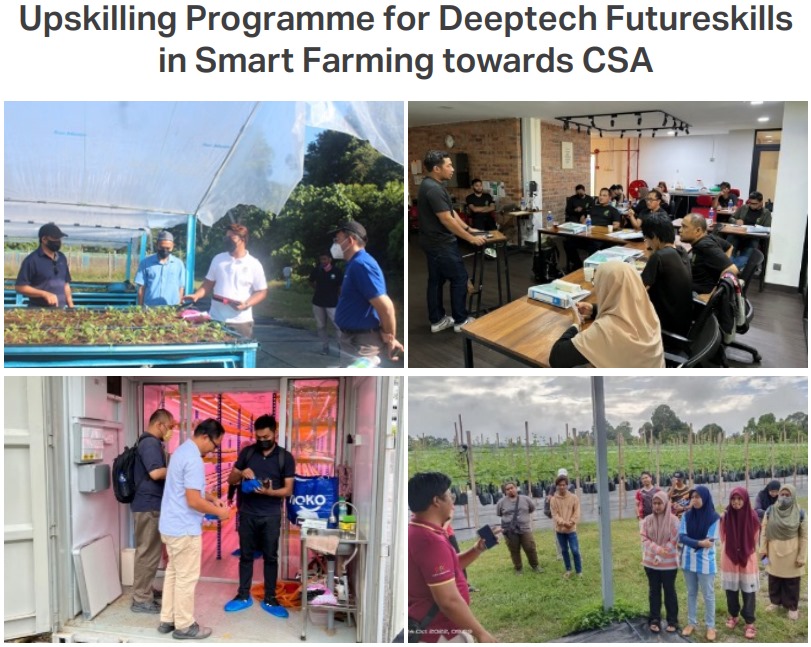
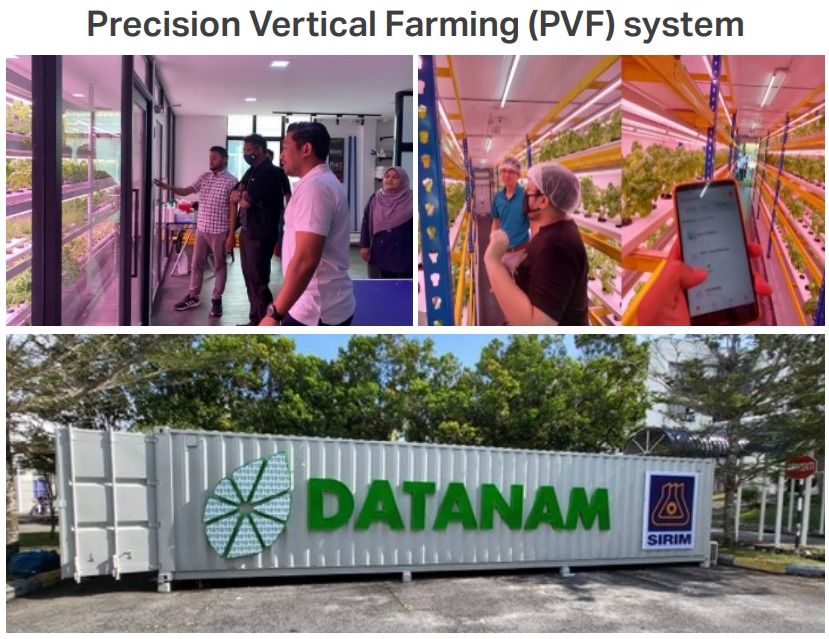
The Precision Vertical Farming (PVF) system was operated in Shah Alam, Selangor and Desa Pandan, Kuala Lumpur, and is managed by Datanam focusing on Basil leaves production and other types of high-end vegetable products. Datanam, together with its subsidiary, are also venturing into large scale Napier farming. The PVF system provides an advantage to the plants by creating an efficient controlled-environment system as it offers key features of horticulture LED, energy efficiency, IOT integration, irrigation systems, CO2 monitoring system and automation with zero pesticides. Besides, the participants also were introduced to multiple PVF systems such as Type-C (Container), Type-W (Warehouse), Type-S (Shoplot) and PVC Type-H (House) which can be suited based on customer needs depending on the cost, space availability, production plan and plantation type (lettuce, cabbage, mushroom, basil etc). Participants were also given an opportunity to learn about the Smart Farming Fertigation System based on IOT. The smart farming systems located in Kuala Kangsar, Perak focus on the production of aquaponics, cucumber, brinjal and chilis, is operated and managed by Koperasi Gabungan Usahawan Tani Kuala Kangsar (KOGAHAD). Currently, KOGAHAD has the capability of a system integrator and operates more than 4 farming sites in Kuala Kangsar, covering 50 acres of land and will soon venture into corn plantation.

In this context, there is a huge opportunity to fill the knowledge gap in the agriculture sector for youth development. A holistic capacity-building programme via a strategic platform focusing on CSA will also enhance the TVET knowledge of our youth in the CSA via industry collaboration based on the placement model of the participants to practise the technologies for agriculture. This will require a strategic intervention to facilitate the overall framework development, identify the strategic agricultural farm for CSA implementation, due diligence on the technology solutions, develop the knowledge module and coordinate the overall implementation process. This initiative can be guided by the F.I.R.S.T. ® framework to structure the CSA programme comprehensively covering financing, infrastructure, regulation, skills and technology knowledge of young people as shown below.
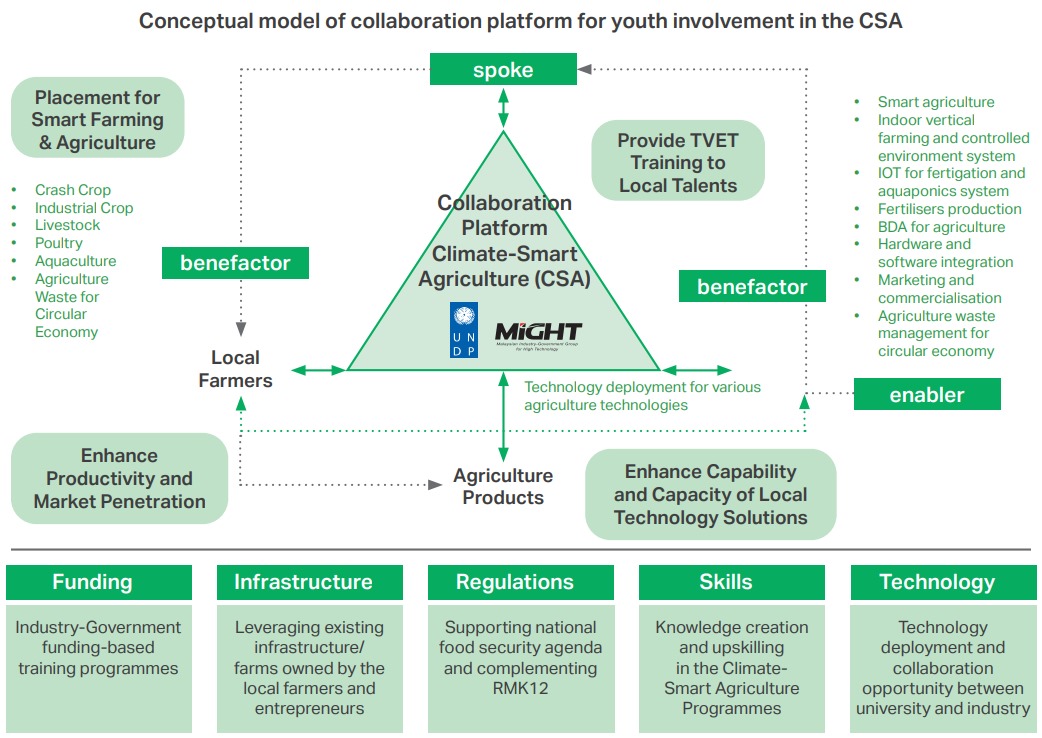
Towards the future, the shift model of CSA needs to be incorporated into the local context of the agriculture industry. This is supported by projected increases in global temperature, fluctuating patterns of precipitation, extreme weather conditions and water stress, which will affect agricultural productivity. Our youth needs to be equipped with knowledge substance and ‘wow’ factor by creating strategic CSA programmes as this will address the issue of youth and workforce in the agriculture sector. This is also aligned with the national agenda on food security and producing new talents in CSA. Furthermore, the CSA collaborative programme will provide an opportunity for local solutions providers to deploy technology and to strengthen the partnerships amongst all parties. Ultimately, productivity of our agriculture industry will be multiplied and enhanced with the existence of knowledgeable, experienced and technology-driven generation of the future.








